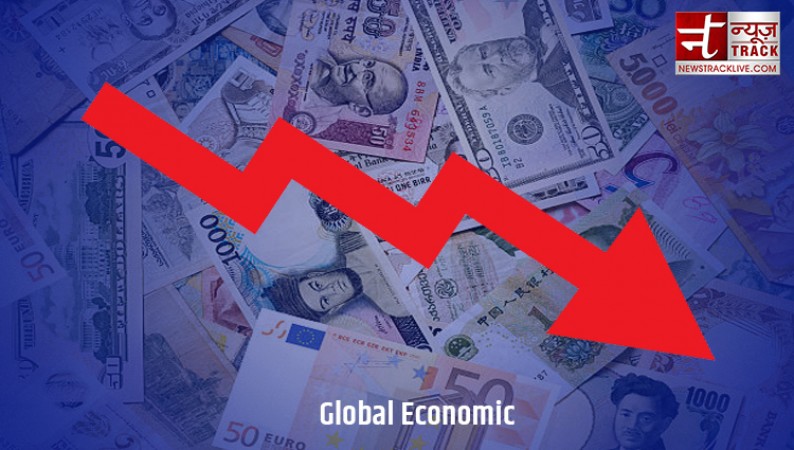
Washington: After U.S. inflation dipped more slowly than anticipated on Wednesday, concerns that the Federal Reserve might feel that further interest rate increases are necessary increased. Asian stocks fell, and European markets opened mixed.
Shanghai, Tokyo, and London all declined. Frankfurt made strides. More than $1 per barrel was lost in the price of oil.
After official data on Tuesday revealed that January's inflation rate was 6.4% rather than the previous month's 6.5%, Wall Street futures fell. That exceeded the 6.2% consensus expectation, which was hotter.
Also Read: Centre notifies ITR forms for AY 2023-24, No major changes
Core inflation, which excludes more volatile food and energy prices to provide a clearer view of the trend, increased from December's 0.3% to 0.4% over the previous month.
According to a report by Oanda's Edward Moya, "Disinflation trends are in danger, which could prompt the Fed to both deliver more rate hikes and for them to stay higher for longer."
The DAX in Frankfurt increased by 0.4% to 15,441.24 in early trading, while the FTSE 100 in London fell by 0.1% to 7,946.73. Paris' CAC 40 increased by 0.7% to 7,260.59.
Futures for the Dow Jones Industrial Average and the benchmark S&P 500 index on Wall Street were both down 0.3%.
Also Read: PhonePe raises USD 100-mn in extra funding at a USD 12 billion valuation
The Dow dropped 0.5% on Tuesday while the S&P 500 lost less than 0.1%. Gaining 0.6%, the Nasdaq composite.
Asia saw a 0.4% decline in the Shanghai Composite Index to 3,280.49 and a 0.4% decline in the Nikkei 225 in Tokyo to 27,501.86. Hong Kong's Hang Seng fell 1.4% to 20,812.17.
Seoul's Kospi fell 1.5% to 2,427.90, while Sydney's S&P-ASX 200 dropped 1.1% to 7,352.20.
The Sensex in India increased by less than 0.1% to 61,055.90. While Southeast Asian markets fell, New Zealand rose.
Over the past year, stock prices have fluctuated as traders try to predict how far the Fed and other central banks will go to combat rising inflation. Some fear they might be willing to cause a recession in the global economy.
Traders anticipate two additional 0.25 percentage point increases in U.S. interest rates to reduce hiring and business activity. Despite remarks from Chair Jerome Powell and other Fed officials that rates might need to remain high for a prolonged period of time, some anticipate cuts to begin as soon as the end of this year.
According to Clifford Bennett of ACY Securities, if inflation remains above 5.5%, "that puts us on track for another four to six Fed rate hikes."
Further investment cuts by consumers and businesses are inevitable, according to Bennett.
The benchmark lending rate set by the Fed is now between 4.5 and 4.75%, up from almost zero a year ago.
Forecasts for how high it might rise by the middle of the year have been increasing by investors. They are placing a wager that its key rate will surpass 5.5% in July with a 19.2% probability. According to CME Group, that is an increase from the 0.2% probability one month prior.
Bond market yields have been rising as a result of market expectations for the Fed.
A stronger-than-expected report on the U.S. labor market last week propelled the two-year Treasury to its highest level since November.
Late on Monday, the two-year yield increased to 4.61% from 4.52%. The 10-year yield, which influences mortgage and other loan rates, increased from 3.70% to 3.75%.
In the energy sector, the New York Mercantile Exchange's electronic trading saw benchmark U.S. crude drop $1.30 to $77.76 per barrel. On Tuesday, the contract dropped $1.08 to $79.06. The benchmark price for international oil trade, Brent crude, dropped $1.26 to $84.32 per barrel in London. The previous session saw a loss of $1.03 to $85.58.
Also Read: Swiss inflation is increasing due to rising energy prices
From 133.06 yen on Tuesday, the dollar increased to 133.43 yen. The euro fell from $1.0739 to $1.0726.